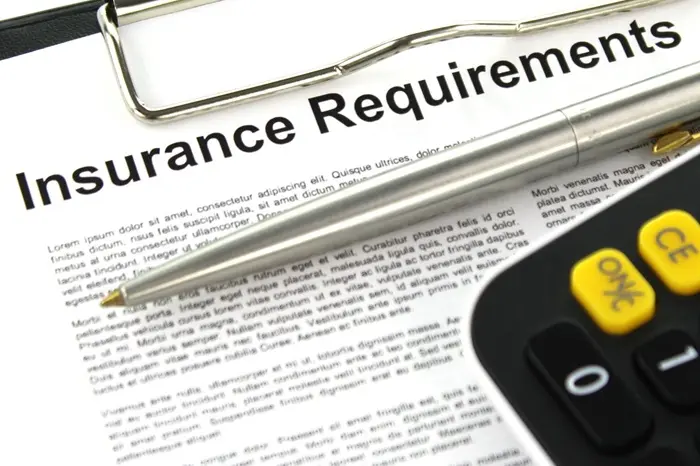Homeowners insurance is an essential policy for protecting your home, belongings, and personal liability. However, premiums can be a significant ongoing cost for homeowners. The good news is that there are several ways to lower homeowners insurance premiums without compromising the coverage you need. This article will explore various strategies that can help you reduce your homeowners insurance costs in a practical and effective manner.
Understand What Affects Your Premium
Before looking for ways to reduce your homeowners insurance premiums, it’s important to understand the factors that influence the cost of your policy. Insurance providers consider several key aspects when calculating your premium. These include the location of your home, its value, the coverage limits, and your claims history.
Home Location
The location of your home plays a major role in determining your homeowners insurance cost. If your home is in an area prone to natural disasters like floods, hurricanes, or wildfires, your premiums are likely to be higher. Likewise, homes located in high-crime areas or areas with a history of vandalism or theft are considered riskier to insure.
Home Value and Rebuilding Costs
Insurance companies base premiums on the value of your home and the cost to rebuild it in the event of damage or loss. Larger, more expensive homes require more coverage, which results in higher premiums. Additionally, if your home is made of expensive materials or has high-end fixtures, this can also contribute to higher insurance costs.
Coverage Limits
The more coverage you have, the higher your premiums will be. If you have comprehensive coverage that includes protection for personal property, liability, and additional living expenses, your premiums will be higher than if you only have basic coverage. Understanding your coverage limits is crucial in determining where you may be able to reduce costs.
Claims History
If you have a history of filing frequent insurance claims, insurers may consider you a higher risk, resulting in higher premiums. On the other hand, if you have a claims-free history, you may be eligible for discounts or lower premiums.
Credit Score
In many states, your credit score can impact your homeowners insurance rates. Insurance companies use credit-based insurance scores to assess your risk level. A higher credit score typically results in lower premiums, while a lower credit score can cause your premiums to increase.
Shop Around for Quotes
One of the most effective ways to lower your homeowners insurance premiums is to shop around for quotes from different insurance providers. Premiums can vary significantly between insurers, so it’s important to compare policies and coverage options before making a decision.
Use Online Comparison Tools
There are many online comparison tools that allow you to quickly and easily compare homeowners insurance quotes from multiple providers. These tools provide you with the best options available based on your specific needs and location. By comparing quotes, you can identify the most affordable policies while still ensuring you get the coverage you need.
Consider Bundling Policies
Many insurance companies offer discounts if you bundle multiple policies, such as homeowners and auto insurance. Bundling policies with the same insurer can help you save money on both policies, and the discounts can significantly reduce your overall insurance costs.
Work with an Insurance Broker
An insurance broker can help you find the best homeowners insurance deal by comparing policies from multiple providers. Brokers have access to a wide range of insurance options and can help you understand the terms and conditions of each policy to find the most affordable coverage for your needs.
Avoid Settling for the First Quote
Many homeowners accept the first quote they receive, but this can often result in paying more than necessary. It’s important to compare several quotes from different insurance companies before making a decision. This will help ensure that you get the best deal for your needs.
Raise Your Deductible
One simple way to lower your homeowners insurance premiums is to raise your deductible. The deductible is the amount of money you pay out of pocket before your insurance coverage kicks in. By opting for a higher deductible, you can lower your monthly or annual premium.
Consider Your Financial Situation
While raising your deductible can lower your premiums, it’s important to consider your financial situation. If you increase your deductible too much, you may struggle to cover the cost in the event of a claim. Be sure to select a deductible amount that is manageable for you in the event of an emergency.
Balance Deductible and Premiums
Finding the right balance between your deductible and premiums is key. Raising your deductible too much could lead to savings on premiums, but it also means you’ll have to pay more if you need to make a claim. Carefully assess your finances and determine a deductible amount that works for you.
Improve Home Security
Many insurance providers offer discounts for homes that have certain security features. If you can demonstrate that your home is well-secured, you may be able to lower your insurance premiums. These security features make your home less of a target for thieves and can reduce the risk of damage from events like fires or break-ins.
Install a Security System
A home security system that includes alarms, cameras, and monitoring can often qualify you for a discount on your homeowners insurance. A security system is an effective deterrent against theft, and insurance companies often reward homeowners who take steps to protect their property.
Install Smoke and Carbon Monoxide Detectors
Smoke detectors and carbon monoxide detectors are essential for the safety of your home. Installing these detectors and ensuring they are working properly can not only protect your family but may also help reduce your premiums. Many insurers offer discounts for homes that have these safety devices installed.
Reinforce Your Home Against Natural Disasters
If you live in an area prone to natural disasters, such as hurricanes, floods, or earthquakes, reinforcing your home can reduce the likelihood of major damage. Some insurance providers offer discounts for homes that are retrofitted with features that reduce the risk of damage from these events.
Maintain a Claims-Free History
Maintaining a clean claims history is one of the easiest ways to keep your homeowners insurance premiums low. Insurance companies often reward policyholders with a clean claims record by offering discounts or lower rates.
Avoid Small Claims
While it may seem tempting to file a claim for smaller issues, making frequent claims can drive up your premiums. If you can afford to handle smaller repairs or damages out of pocket, it may be better to avoid filing a claim. By doing so, you can maintain a clean claims history and keep your premiums lower.
Consider a Claims-Free Discount
Many insurers offer discounts for policyholders who have gone several years without making a claim. If you are a responsible homeowner with a long history of claims-free coverage, inquire about any available discounts for this status.
Improve Your Credit Score
In many states, insurance companies use your credit score as one of the factors in determining your premiums. A higher credit score typically results in lower premiums, while a lower credit score may lead to higher rates. Improving your credit score can be an effective way to lower your homeowners insurance premiums.
Pay Bills on Time
Timely payment of bills, including credit card bills, mortgages, and loans, can improve your credit score. The more responsible you are with your financial obligations, the better your credit score will be.
Reduce Your Debt
A lower debt-to-income ratio is an important factor in improving your credit score. Try to reduce your outstanding debt by paying off credit cards and loans. A healthier financial profile can result in lower premiums for your homeowners insurance.
Review Your Coverage Regularly
It’s important to review your homeowners insurance policy regularly to ensure that it still meets your needs and that you’re not paying for unnecessary coverage. Your circumstances may change over time, and your insurance policy should reflect those changes.
Adjust Coverage for Renovations
If you’ve made significant changes to your home, such as renovations or improvements, be sure to update your policy accordingly. If you’ve made your home more valuable, you may need to increase your coverage. On the other hand, if your home value has decreased or certain features are no longer necessary, you may be able to reduce your coverage.
Review Policy Annually
Insurance premiums can change from year to year, so it’s a good idea to shop around and review your policy annually. By regularly assessing your policy, you can identify areas where you may be able to save money and ensure that your coverage remains adequate.
Consider Homeowners Insurance Discounts
Many insurance providers offer a variety of discounts that can help lower your premiums. These discounts may be based on your home’s safety features, your claims history, or other factors.
Discount for New Homeowners
Some insurance companies offer discounts for first-time homebuyers. If you’re purchasing a new home, inquire about any available discounts that may apply to you.
Multi-Policy Discounts
If you bundle your homeowners insurance with other policies, such as auto insurance or life insurance, you may qualify for a multi-policy discount. This can lead to significant savings on your overall insurance premiums.
Conclusion
Lowering your homeowners insurance premiums requires a combination of understanding what affects your rates, shopping around for quotes, improving your home’s safety, and adjusting your coverage to suit your needs. By using strategies such as raising your deductible, improving home security, maintaining a claims-free history, and improving your credit score, you can significantly reduce your insurance costs. It’s also important to review your policy regularly to ensure you’re not overpaying for coverage you don’t need. With these steps, you can keep your homeowners insurance premiums affordable while still maintaining adequate coverage for your home and belongings.
Related topics:
























